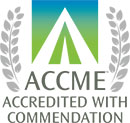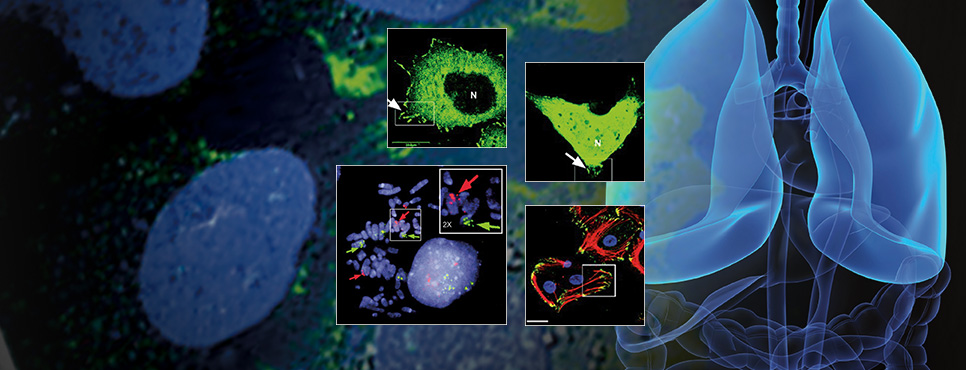Continuing Medical Education

Accreditation Statement
The American Association for Cancer Research (AACR) is accredited by the Accreditation Council for Continuing Medical Education (ACCME) to provide continuing medical education activities for physicians.
Credit Designation Statement
AACR has designated this live activity for a maximum of 18.75 AMA PRA Category 1 Credit(s)™. Physicians should only claim credit commensurate with the extent of their participation in the activity.
Credit certification for individual sessions may vary, dependent upon compliance with the ACCME Accreditation Criteria. The final number of credits may vary from the maximum number indicated above.
Claiming CME Credit
Physicians and other health care professionals seeking AMA PRA Category 1 Credit(s)™ for this live continuing medical education activity must complete the CME Request for Credit Survey by Tuesday, February 25, 2019. Certificates will only be issued to those who complete the survey. The Request for Credit Survey will be available via a link below, and via email. Your CME certificate will be sent to you via email after the completion of the activity.
- REQUEST FOR CREDIT SURVEY

Successful completion of this CME activity, which includes participation in the evaluation component, enables the participant to earn up to 18.75 Medical Knowledge MOC points in the American Board of Internal Medicine’s (ABIM) Maintenance of Certification (MOC) program. Participants will earn MOC points equivalent to the amount of CME credits claimed for the activity. It is the CME activity provider’s responsibility to submit participant completion information to ACCME for the purpose of granting ABIM MOC credit.
To receive ABIM MOC, participants must request MOC in the CME Request for Credit Survey and complete all questions. Once these steps are completed, AACR will submit your completion information via the ACCME’s Program and Activity Reporting System for the purpose of granting MOC points.
Statement of Educational Need, Target Audience, and Learning Objectives
Lung cancer is the leading cause of cancer-related death in the United States and globally. In 2019, the estimated number of deaths from lung cancer in the United States (142,670) and worldwide (over 1.7 million people) is staggering.
In recent years, we have come to identify many of the genetic alterations that fuel lung cancer growth and drug resistance mechanisms. Major strides in harnessing the immune system to treat lung cancer have been made, increasing the number of treatment modalities in lung cancer. Identifying and verifying potential therapeutic targets, developing and testing therapeutics for optimal treatment, and evaluating mechanisms of resistance to therapy requires a multi-disciplinary approach and collaborative efforts.
Notably, since the last conference in this series occurred in 2018 (between August 1, 2018 and July 31, 2019), three cell-signaling inhibitors (dacomitinib, lorlatinib, and the second approved tissue-agnostic drug, larotrectinib, for NTRK-positive solid tumors) and three immune-checkpoint inhibitors (atezolizumab, nivolumab, and pembrolizumab) have been approved/approved for new use in certain types of lung cancer. The ability to discuss the data and propel progress forward on this new treatment front and emerging resistance to other treatment options will be possible in our conference forum.
Early detection remains critical in improving the survival rates in those diagnosed with cancer. The 5-year survival rate for lung cancer is 19%. Only 16% of lung cancer cases are diagnosed at a localized stage; however, the five-year survival rate at this stage is significantly higher (56%). Technologies in early detection, such as continued recommendations for screening, the potential of liquid biopsies and circulating tumor DNA, also provide opportunities for collaboration of physicians and translational/basic research colleagues.
Bridging the gap between what physicians understand about cancer biology and its application to clinical oncology is critical to the implementation of the most current, approved molecular-based tests to aid in the diagnosis, treatment and prevention of cancer. Moreover, facilitating the interface between physicians and scientists will increase physicians’ knowledge of the epidemiological implications of lung cancer incidence and the contributions of laboratory research to drug development and alternate strategies should a cancer become resistant to therapy.
The target physician/oncologist audience of this conference research or treat those with lung cancer. This conference has a diverse target audience which will provide physicians/learners with ample opportunity for collaboration and cross-disciplinary exchange of information.
After participating in this CME activity, physicians should be able to:
1. Demonstrate a knowledge of the current state of the field of lung cancer at various stages including lung preneoplasia, tumor progression, and metastasis.
2. Assess the current therapeutic options and mechanisms of action for targeting Ras-driven lung cancers.
3. Compare and discuss current therapeutic modalities in lung cancer.
4. Articulate currently studied genomic and nongenetic mechanisms of resistance to therapy.
Disclosure Statement
It is the policy of the AACR that the information presented at AACR CME activities will be unbiased and based on scientific evidence. To help participants make judgments about the presence of bias, AACR will provide information that Scientific Program Committee members and speakers have disclosed about financial relationships they have with commercial entities that produce or market products or services related to the content of this CME activity. This disclosure information will be made available in the Program/Proceedings of this conference.
Acknowledgment of Financial or Other Support
This activity is supported by professional educational grants and will be disclosed at the activity.
Questions about CME?
Please contact the Office of CME at (215) 440-9300 or [email protected].
